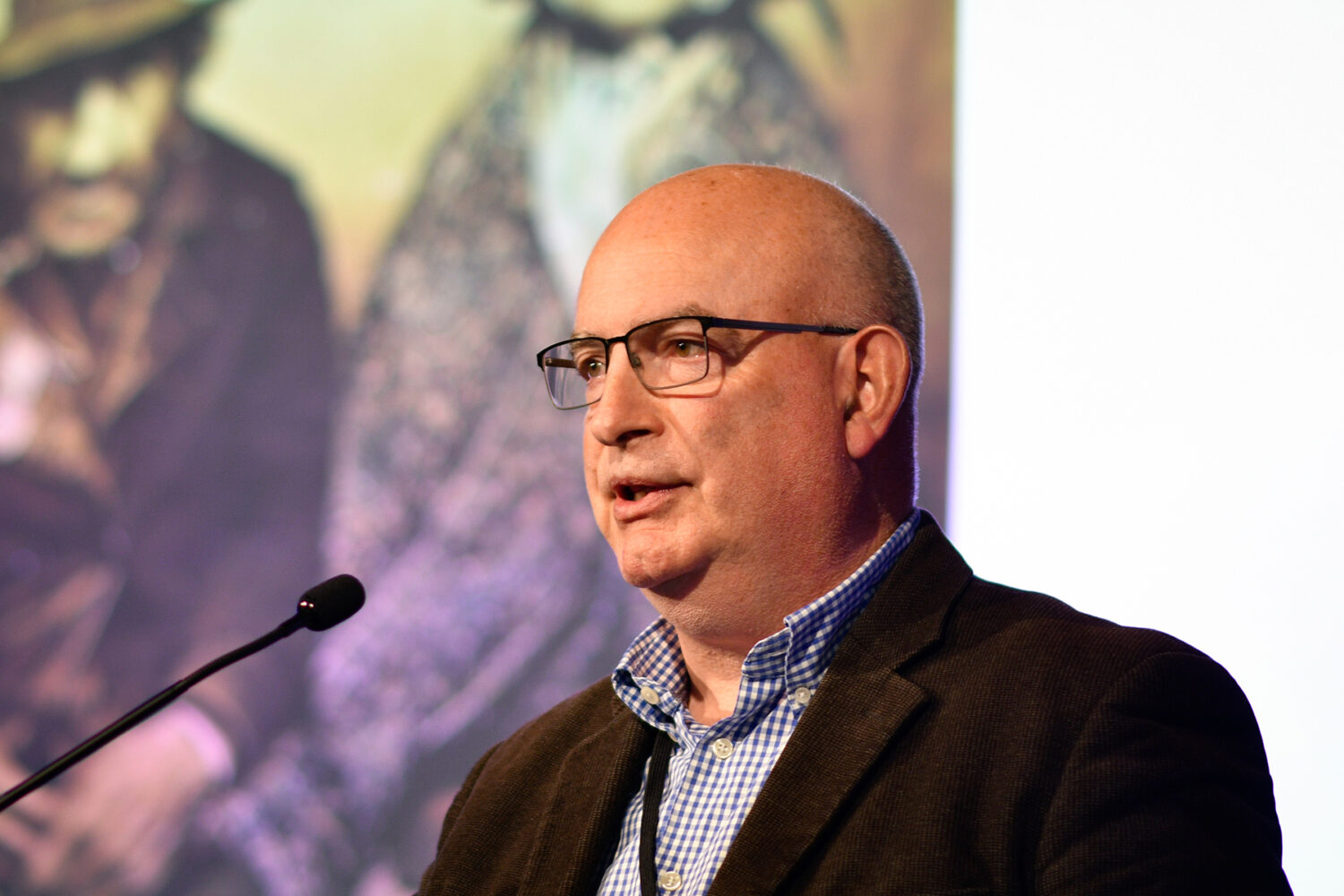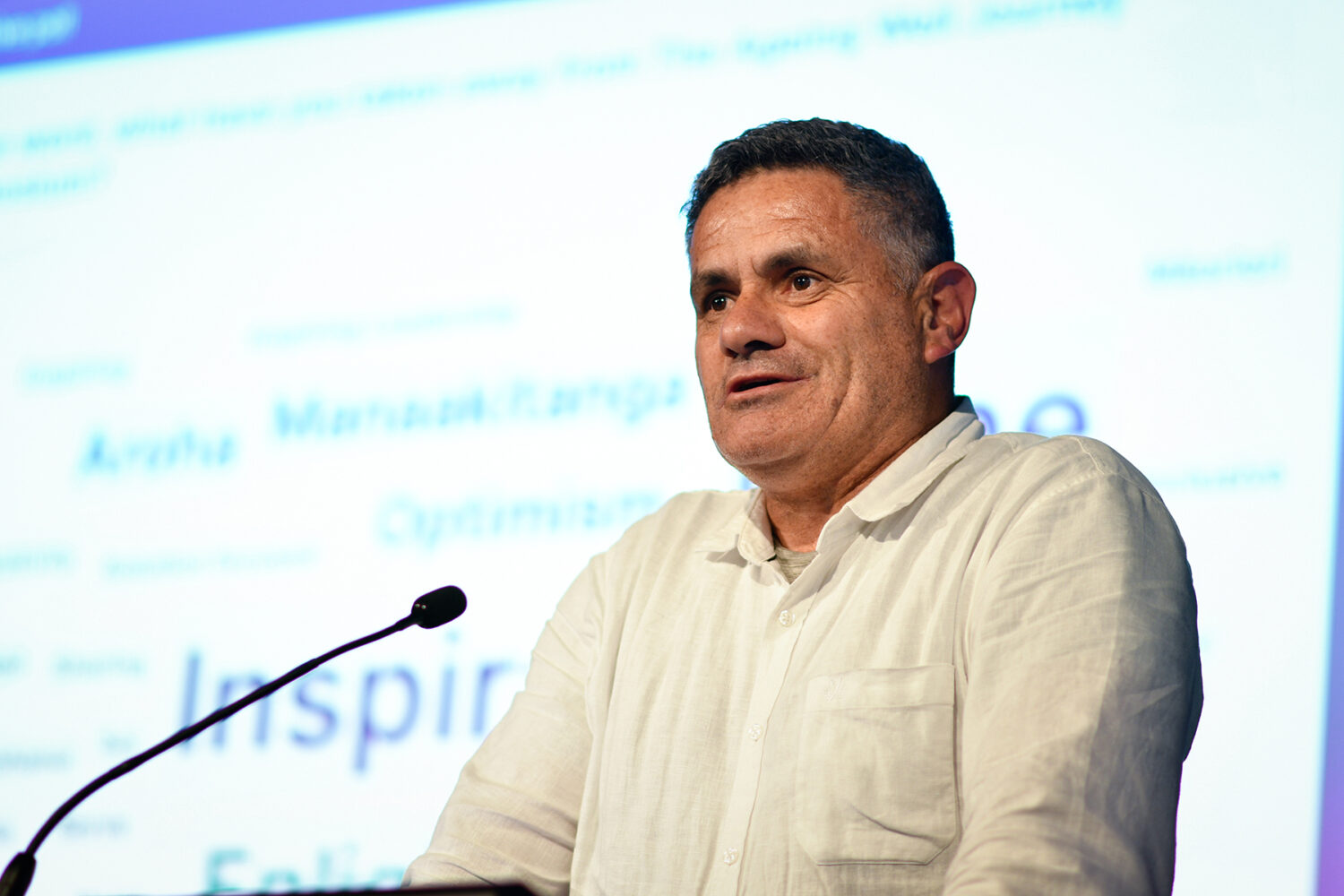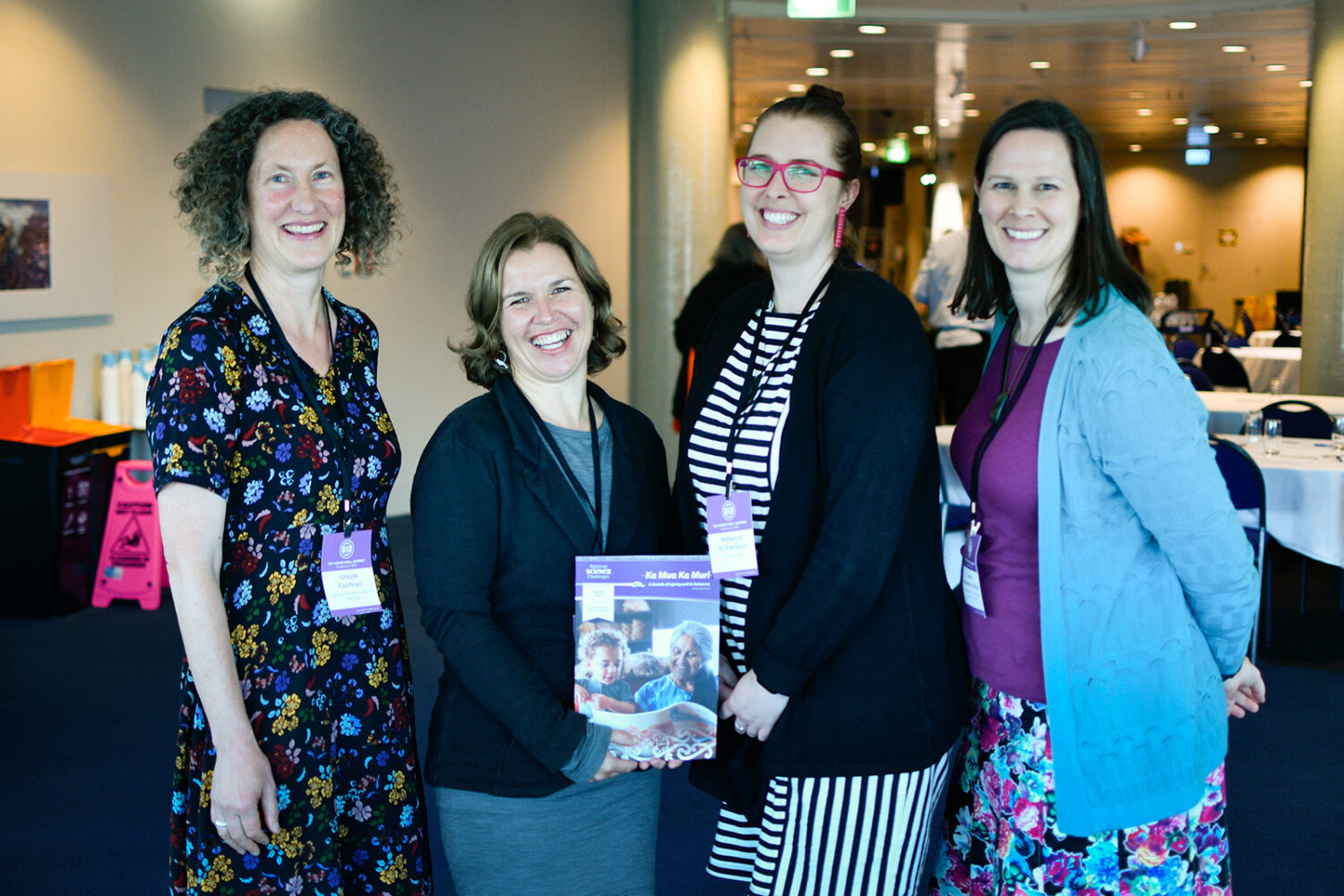Our purpose has been to create change though harnessing science and mātauranga Māori to sustain health and wellbeing in to the later years. This is the story of our innovative and equitable research that ensures all New Zealanders age well.
Ageing well can mean different things for different communities, and different communities’ social and cultural uniqueness will, in different ways, shape the way they age. A one-size-fits-all approach to the issue will not work for the diverse population of Aotearoa, therefore it is crucial to not only improve the experience of ageing in Aotearoa, but also to make it equitable.
This was one of the early insights that Ageing Well gained from its ageing-related research. We saw that there was little knowledge about how kaumātua age well in different settings and circumstances, so we set about funding in our next phase of projects that identified – and valued – the cultural differences in how ageing is perceived and how it is lived.
The journey to an equity-centric lens is just one of the elements of Ageing Well’s new publication Ka Mua Ka Muri: A decade of ageing well in Aotearoa and beyond. The pukapuka [book] primarily tells the story of the second phase (2019-2024) of Ageing Well research, and dives into our learnings and hopes for the future of ageing-related research in Aotearoa.
 The book reflects the journey we have been on over the past decade... We are very proud of our achievements, our research, and the relationships we have built." -- Professor Baxter.
The book reflects the journey we have been on over the past decade... We are very proud of our achievements, our research, and the relationships we have built." -- Professor Baxter.
Director of Ageing Well, Professor David Baxter was delighted to see a decade of ageing-related research and learnings reflected in Ka Mu Ka Muri.
“The book reflects the journey we have been on over the past decade, with the refinement of our kaupapa, the conscious steps we have taken toward Te Tiriti partnership, and our commitment to equity in our research. We are very proud of our achievements, our research, and the relationships we have built,” said Professor Baxter.
“Having been with Ageing Well since the beginning, I have witnessed the way Ageing Well has altered – for the better – the way ageing-related research is done in Aotearoa. This book demonstrates this and we could not be prouder,” he added.
Dr Will Edwards, Chair of Ageing Well, said of the impact of our organisation has had had on New Zealanders, “The Ageing Well whānau has shown that science can be done differently and deliver impact for kaumātua and their whānau, particularly for communities that the science sector has previously not served well.”
“Doing research within a kaupapa Māori framework can absolutely progress us towards that lofty goal of adding life to years. It is heartwarming to be able to prove that science done differently works,” he said.
 “Doing research within a kaupapa Māori framework can absolutely progress us towards that lofty goal of adding life to years. It is heartwarming to be able to prove that science done differently works." -- Dr Will Edwards
“Doing research within a kaupapa Māori framework can absolutely progress us towards that lofty goal of adding life to years. It is heartwarming to be able to prove that science done differently works." -- Dr Will Edwards
Community is at the heart of our mahi
The aim of this pukapuka is to be an accessible, easily-read document that gives people an insight and understanding of the Ageing Well kaupapa, and the metamorphosis we have undergone. However, at the centre of Ageing Well are our people.
“The cornerstone of our impact and legacy is our community. The knowledge that has been jointly created and shared is a direct result of whanaungatanga – the building and continuing of relationships,” said Professor Baxter.
“What we show in the book is that some of our biggest successes have been people-powered: we are proud of what we have achieved, but also how we have achieved them and who we’ve achieved them with.”
As former Director of Ageing Well, Professor Louise Parr-Brownlie, states in the book:
“The collective noun that we use for our researchers, partnering organisations, and communities is whānau… that collective responsibility is so important in understanding and doing what needs to be done. We can’t do our jobs without our whānau. We wouldn’t achieve what we have without them,” she said.
Researcher Rangimahora Reddy, CEO of Rauawaawa Kaumātua Charitable Trust, summed up what it means to do relationship-based research from a community perspective.
“Ageing Well appreciate what we do and recognise the value in the model we use – core people start to contribute, they find their own purpose, and bring a wealth of knowledge. There have been amazing outcomes that are relevant, timely, and from the people,” said Ms Reddy.
 "Ageing Well appreciates what we do and recognises the value in the model we use... There have been amazing outcomes that are relevant, timely, and from the people." -- Rangimahora Reddy
"Ageing Well appreciates what we do and recognises the value in the model we use... There have been amazing outcomes that are relevant, timely, and from the people." -- Rangimahora Reddy
Launching the book with our whānau
The recent gathering of the Ageing Well whānau at our Symposium in Wellington provided the perfect opportunity to launch the pukapuka. It was officially launched onstage by Ageing Well Director Professor David Baxter, former Director Professor Louise Parr-Brownlie, and Chair, Dr Will Edwards.
Professor Baxter said, “It gave me great pleasure to officially launch the book that tells the story of this current phase of Ageing Well research. Releasing the book at our Symposium realised the perfect opportunity to share the outcomes and learnings with our whānau – those in the room who contributed to the research – and introduce our mahi to new faces,” he said.
“Ka Mua Ka Muri is a wonderful pukapuka and we hope that this type of publication, one that brings science and research to the public in a very accessible way, will enjoy a life beyond the end of the Challenge. The team is all so exceptionally proud of what we have achieved,” he added.
Dr Edwards gave a beautiful karakia to bless the pukapuka and described it as a taonga [treasure] that we are giving to the people of Aotearoa, one that reflects what we have learned about ageing well in the last decade.
The three speakers were also joined on stage by part of the team assembled to produce the book: science writer Dr Ursula Cochran (from Ursula Cochran Science Writing); writer Laura Hikawai-Goodall, plus editor/project manager Kylie Bailey (both from GoodSense), as well as Ageing Well Communications Advisor Rebecca Richardson.
Dr Cochran spoke of learning more about Ageing Well and came to see the book as a beautiful forest of trees, standing tall and proud, while being rooted in the earth and the mahi. Ms Hikawai-Goodall took the opportunity to thank Ageing Well for placing their trust in the team to work alongside our whānau and reflect the wairua of the kaupapa in the book.
“We would also like acknowledge the team at Ariki Creative who were a significant part of our collective, designing and creating the book, as well as weaving in the te ao Māori element of the waka huia,” continued Professor Baxter.
“Their vision for our book perfectly aligned with ours, and their mahi brought the book to life,” he added.
Ka Mu Ka Muri as a Waka Huia
Waka huia, historically, were “prized treasure boxes, meticulously crafted to hold precious adornments and taonga passed down through generations”. The team at Ariki Creative used the waka huia as inspiration for the design of the pukapuka and explained their concept and how that related to the mahi of Ageing Well.
“Within the framework of Ageing Well, the treasures symbolized within the waka huia transcend material possessions. Instead, they represent the invaluable wealth of wisdom, values, and intergenerational legacies passed down through time.
“These treasures are not just for personal enrichment, but are intended for the benefit and guidance of future generations, fostering their developments though the teachings and knowledge of the past.”
Many thanks to Tuha Tuimaka, Mikael Tuhaka, Hori Mataki, Taane Flanagan, and Eli Taueki at Ariki Creative for their essential contributions to the pukapuka.
LINKS
The Ageing Well book, Ka Mua Ka Muri: A decade of ageing well in Aotearoa and beyond, can be downloaded free as a PDF.
This is the second book Ageing Well produced, the first being Celebrating Ageing Well: the first five years of the Ageing Well National Science Challenge released in 2021.
Ka Mua Ka Muri:
Ageing Well - Ka Mua Ka Muri - WEB Version small




